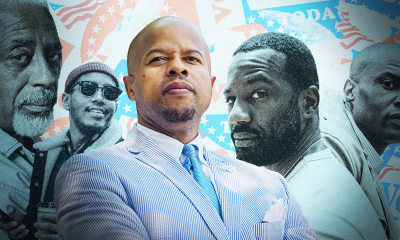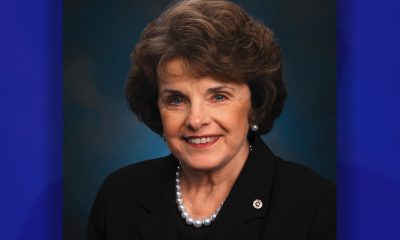Op-Ed
U.S. Should Take Gun Lessons from Britain
By Lekan Oguntoyinbo
NNPA Columnist
In Manchester, one of Great Britain’s largest cities, only 209 of the 6,700 police officers carry guns. These officers are bound by tight restrictions, Sir Peter Fahy, chief of the Greater Manchester Police, told the Washington Post recently. Shooting at moving vehicles, at suspects fleeing a scene or at those brandishing knives is forbidden except under very limited circumstances.
In much of Britain, police officers have to walk the beat unarmed for years before they can apply to carry firearms. Most get rejected. The screening process for firearms possession is rigorous and almost daunting. There are fitness tests, psychological evaluations and endless drills on even the most seemingly routine scenarios.
“They rehearse those situations like a SEAL team trying to get into Osama Bin Laden’s compound,” Lawrence Sherman, a Cambridge University criminologist told the Post.
On average, cops in England and Wales open fire an average of five times a year. In the United States, cops open fire that many times a day – at least.
I know what you’re thinking: it’s insane to compare to the United States with the United Kingdom. After all, the U.S. is a violent nation with some of the loosest gun laws on the planet. The homicide rate in Detroit, a city of fewer than 700,000 people, is nearly equal that of Canada, a country of 30 million people. Flint, Mich., another troubled urban center with approximately 100,000 residents, had 52 homicides in 2013. New Zealand, a nation of about 4 million people, had fewer than 50.
No one is suggesting that we reduce the number of police officers authorized to carry firearms in the United States. But there are several similarities between the two countries. Like the United States, Britain is a diverse nation where law enforcement personnel frequently battle urban unrest, gang violence, religious extremism, racial extremists and terrorism. In 2011, riots broke out in London after a Black man was fatally shot. For many years, it was impossible to find a trashcan on the London underground for fear that a terrorist might plant a pipe bomb. In the 1980s, then British Prime Minister Margaret Thatcher narrowly escaped an assassination attempt by agents of the Irish Republican Army.
Still, there are some policing lessons we could import from the U.K. They include:
1. Gun control – Getting a permit to own a gun in the U.K. is extremely difficult and it is next to impossible to legally own an assault weapon. Consequently, police officers there are not as jumpy or frightened about getting shot as their brothers in blue across the pond. They are also considerably less aggressive. The hyper aggressiveness of American cops is often bad news for civilians, particularly the most vulnerable, particularly people of color. It is quite likely, for example, that Tamir Rice, the 12-year-old child who was shot to death in a park last year by a jumpy Cleveland police officer while playing with a toy gun, would be alive today if he lived in the United Kingdom. (Note to gun rights advocates: stricter gun laws will not make the United States less democratic).
2. A refined mindset – In the United Kingdom there is a huge emphasis among law enforcement officers on human rights. They believe in what one retired police chief there described as “policing by consent,” which is to say they see themselves as working with the public or for the public rather than as agents of a faceless state or municipal agency. British officers are also terrified of getting it wrong. That mindset of social responsibility and teaming up with the community to solve problems, particularly in predominantly minority communities, hasn’t quite sunk in here – in spite of the prevalence of phone cameras and social media. That may explain why David Eric Casebolt, the McKinney, Texas police officer who savagely slammed a Black teenage girl to the ground, thought nothing of pointing his gun at a group of unarmed Black teens who gathered nearby to monitor him.
3. Uniform standards – Great Britain has considerably more uniformity among its police departments. They each have a minimum of 100 police officers. There are oversight boards that monitor the activities of local law enforcement agencies and there is considerable transparency in cases in which civilians are killed or even shot. Such a system breeds community and lowers the levels of distrust.
In recent years there’s been a great deal of talk about the increased militarization of our law enforcement agencies and the blatant lawlessness of our lawmen. Unless – and until – we make concerted efforts at law reform, we will continue to bury more children playing with toy guns.
And our cities will continue to burn.
Lekan Oguntoyinbo is an independent journalist. Contact him at oguntoyinbo@gmail.com. Follow him on Twitter @oguntoyinbo.
###
Activism
Oakland Post Endorses Barbara Lee
Barbara Lee will be able to unify the city around Oakland’s critical budget and financial issues, since she will walk into the mayor’s office with the support of a super majority of seven city council members — enabling her to achieve much-needed consensus on moving Oakland into a successful future.
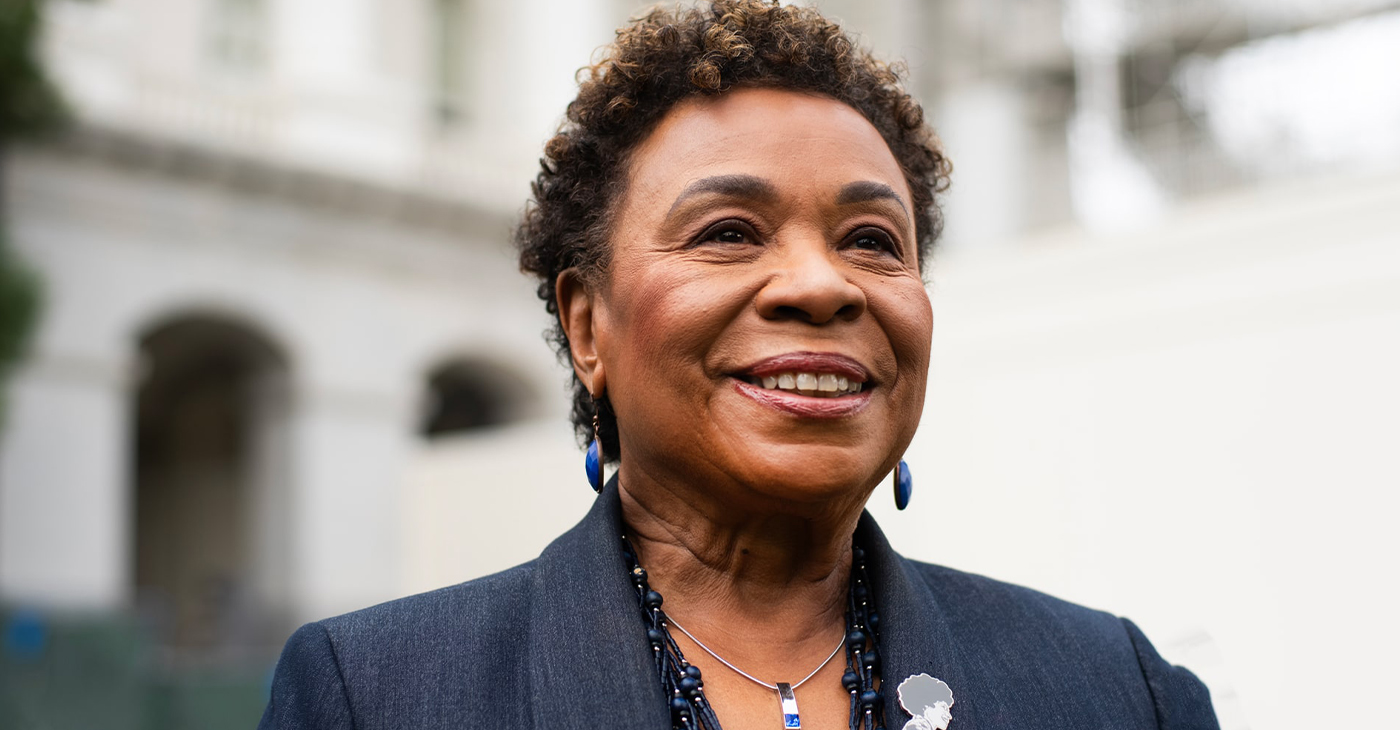
As we end the celebration of Women’s History Month in Oakland, we endorse Barbara Lee, a woman of demonstrated historical significance. In our opinion, she has the best chance of uniting the city and achieving our needs for affordable housing, public safety, and fiscal accountability.
As a former small business owner, Barbara Lee understands how to apply tools needed to revitalize Oakland’s downtown, uptown, and neighborhood businesses.
Barbara Lee will be able to unify the city around Oakland’s critical budget and financial issues, since she will walk into the mayor’s office with the support of a super majority of seven city council members — enabling her to achieve much-needed consensus on moving Oakland into a successful future.
It is notable that many of those who fought politically on both sides of the recent recall election battles have now laid down their weapons and become brothers and sisters in support of Barbara Lee. The Oakland Post is pleased to join them.
Activism
Actor, Philanthropist Blair Underwood Visits Bay Area, Kicks Off Literacy Program in ‘New Oakland’ Initiative
These community activations were coordinated with the San Francisco-based non-profit program “Room to Read.” Ray said he is also donating his time to read and take pictures with students to encourage their engagement and to inspire them to read more. The inspirational book “Clifford Ray Saves the Day” highlights Clifford Ray’s true story of saving a dolphin.
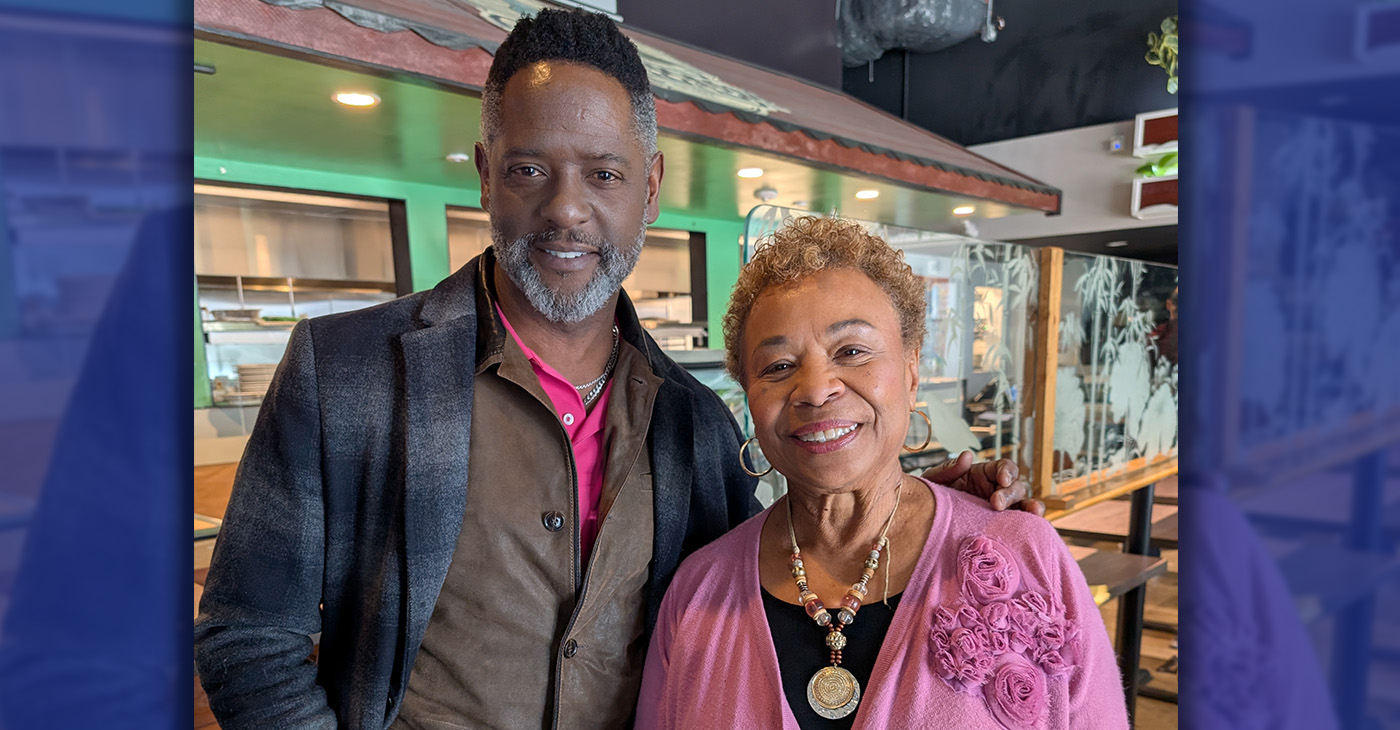
By Paul Cobb
New Oakland Series
Opinion Part 3
The Post mentioned three weeks ago that a number of our local luminaries were coming together to support the “New Oakland” movement. As this current national administration continues to eliminate our “legacy” institutional policies and programs left and right, most communities find themselves beyond “frozen” in fear.
Well, esteemed actor, long-time Bay Area supporter, and philanthropist Blair Underwood returned to Oakland this week to speak with city leaders, community trust agents, students, the Oakland Post, and local celebrities alike to continue his “New Oakland” initiative.
This week, he kicked off his “Guess Who’s Coming to Read” literacy program in some of Oakland’s middle schools. Clifford Ray, who played the center position of the 1975 World Champion Golden State Warriors, donated close to 1,000 books. Ray’s fellow teammate Charles “The Hopper” Dudley also gave Converse sneakers to students.
These community activations were coordinated with the San Francisco-based non-profit program “Room to Read.” Ray said he is also donating his time to read and take pictures with students to encourage their engagement and to inspire them to read more. The inspirational book “Clifford Ray Saves the Day” highlights Clifford Ray’s true story of saving a dolphin.
Underwood also spent quality time with the Oakland Ballers ownership group and visited the amazing Raimondi Park West Oakland community revitalization site. In the 1996 TV film Soul of the Game, Underwood played the role of the legendary first Black Major League Baseball player Jackie Robinson and commended the Ballers owners.
“This group of sports enthusiasts/ philanthropists needs to be applauded for their human capital investment and their financial capital investment,” Underwood said. “Truly putting their money and passion to work,” Underwood said.
Underwood was also inspired by mayoral candidate Barbara Lee’s open-minded invitation to bring public-private partnership opportunities to Oakland.
Underwood said he wants to “reinforce the importance of ‘collaborative activism’ among those most marginalized by non-empathic leadership. We must ‘act out’ our discomfort with passionate intentions to create healthy change.”
Activism
Councilmembers Ramachandran, Kaplan, Unger Identify Funds to Save Oakland Fire Stations
Our budget crisis – one of the worst in Oakland’s history – is compounded by the fact that people do not feel safe coming to Oakland due to our public safety crisis. By investing in our fundamental public safety resources today, we can send a signal to the world that Oakland is open for business. We have such a rich and vibrant culture, arts, and food scene that is worth celebrating – but we can only showcase this if we are able to keep our neighborhoods safe. Having fully functioning fire stations are absolutely essential to these efforts.
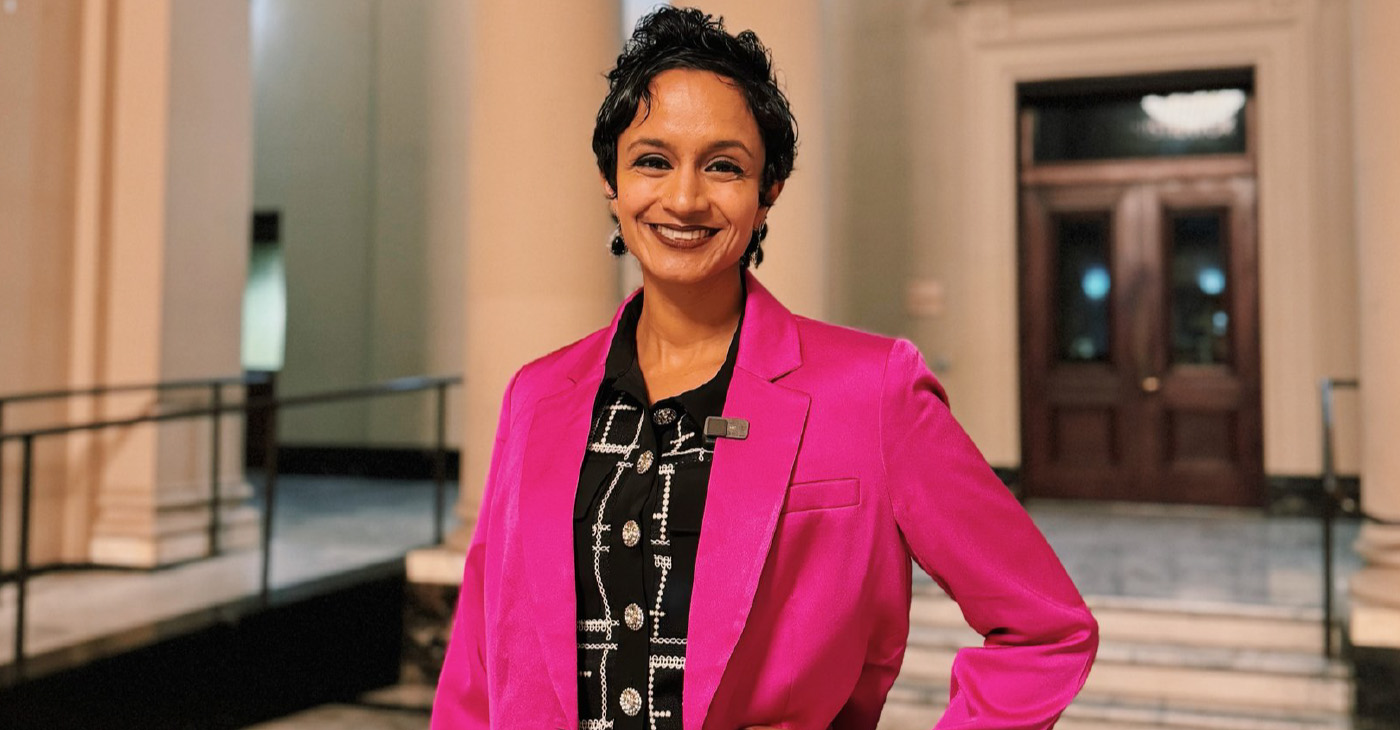
By Janani Ramachandran
There is no greater concern to the people of Oakland today than public safety. Fire stations are the bread and butter of essential city services – and every day that we have stations shuttered, we imperil the lives of our community members. In response to widespread outcry over the current and planned closure of stations, myself, along with Councilmembers Kaplan and Unger, have painstakingly worked to identify millions of dollars of new funding to save our stations. The legislation we introduced on Thursday, February 13th, will amend our budget to prevent the closure of four fire stations that are currently on the chopping block due to our budget crisis and will re-open two closed stations that have already been closed – Station 25 and 28 – in the near future. The resolution that will provide the funding to keep our stations open will go before the full City Council for a vote at our meeting on Tuesday, March 4th at 3:30 PM – and we invite you to join us at City Hall to share your perspective on the topic.
Our budget crisis – one of the worst in Oakland’s history – is compounded by the fact that people do not feel safe coming to Oakland due to our public safety crisis. By investing in our fundamental public safety resources today, we can send a signal to the world that Oakland is open for business. We have such a rich and vibrant culture, arts, and food scene that is worth celebrating – but we can only showcase this if we are able to keep our neighborhoods safe. Having fully functioning fire stations are absolutely essential to these efforts.
With the devastating Los Angeles fire at the top of people’s minds, terrible memories of Oakland’s own wildfires are re-surfacing from the 1991 Oakland Hills Firestorm to the Keller fire just a few months ago – and how essential fire stations are to mitigating these catastrophes. But in Oakland, our fire stations don’t just fight wildfires – they also provide emergency medical services to our most vulnerable constituents, put out structural fires and encampment fires, and much more.
We recognize that there are a number of competing interests and important initiatives fighting for sparse City resources. But from my perspective, core safety services are the most pivotal functions that a City must spend its resources on – especially given the outcry we have heard around fire stations.
The fight to save our stations is not over. The resolution we introduced is a critical first step, and there are hurdles to overcome. If you support keeping our fire stations open, we invite you to be a part of the solution by making your voice heard at the March 4th City Council meeting at 3:30 pm.
-

 Activism3 weeks ago
Activism3 weeks agoOakland Post Endorses Barbara Lee
-

 Activism4 weeks ago
Activism4 weeks agoOakland Post: Week of March 28 – April 1, 2025
-

 Activism3 weeks ago
Activism3 weeks agoOakland Post: Week of April 2 – 8, 2025
-

 #NNPA BlackPress3 weeks ago
#NNPA BlackPress3 weeks agoTrump Profits, Black America Pays the Price
-

 Activism2 weeks ago
Activism2 weeks agoOakland Post: Week of April 9 – 15, 2025
-

 #NNPA BlackPress3 weeks ago
#NNPA BlackPress3 weeks agoHarriet Tubman Scrubbed; DEI Dismantled
-

 #NNPA BlackPress3 weeks ago
#NNPA BlackPress3 weeks agoLawmakers Greenlight Reparations Study for Descendants of Enslaved Marylanders
-

 #NNPA BlackPress3 weeks ago
#NNPA BlackPress3 weeks agoTrump Targets a Slavery Removal from the National Museum of African-American History and Culture










